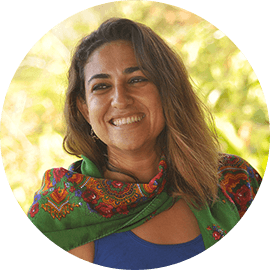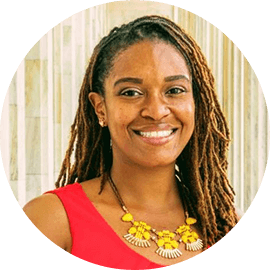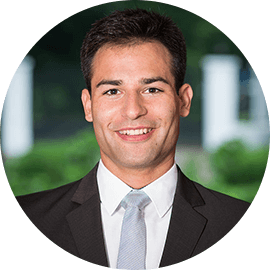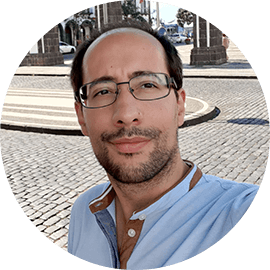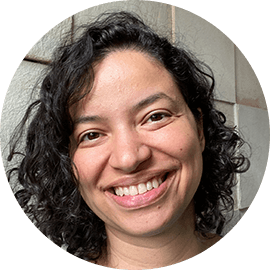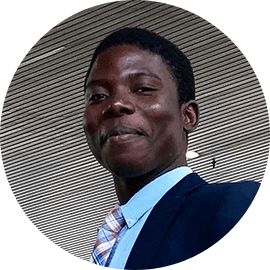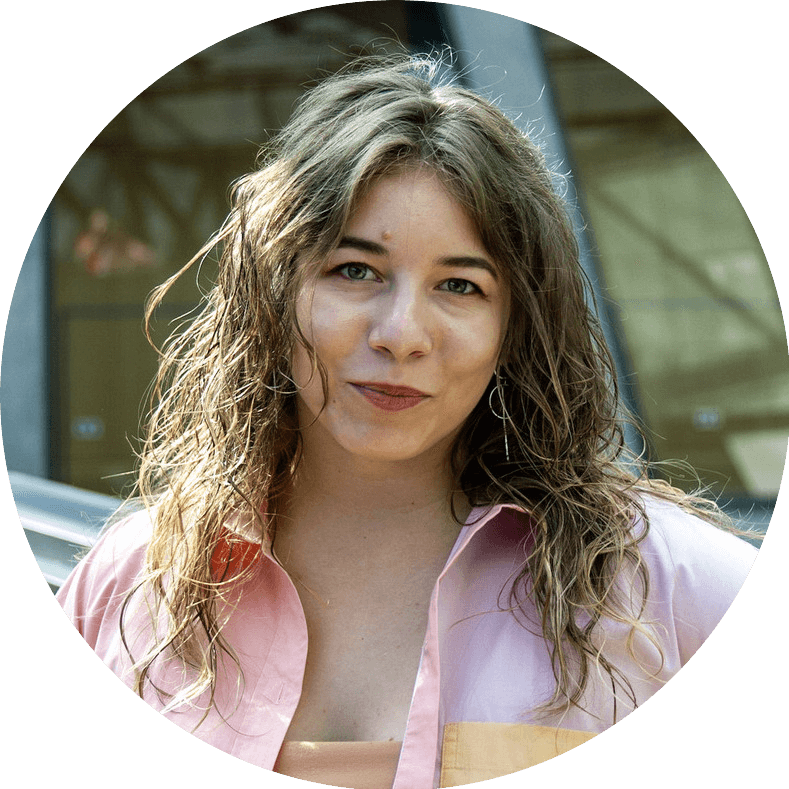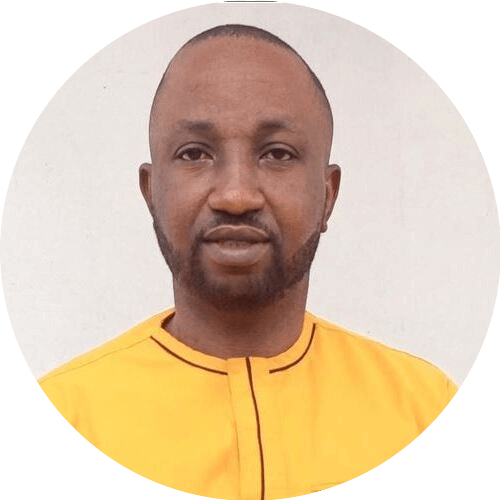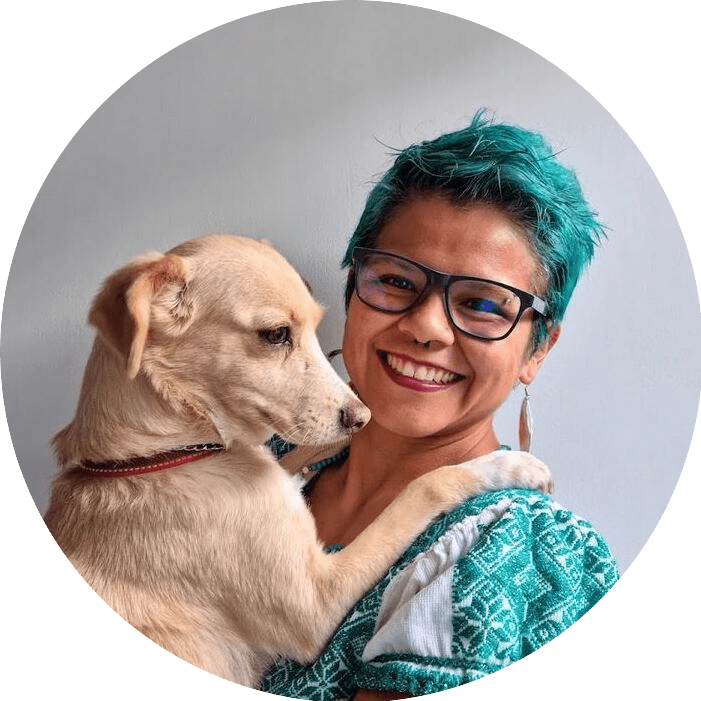Aufgrund der enormen Beliebtheit und der hohen Nachfrage unserer MAXQDA Grants #ResearchForChange, freuen wir uns sehr, dass wir unser Programm erweitern werden, um noch mehr Chancen für Forscher*innen zu bieten.
Wir haben uns entschieden, die MAXQDA Grants im Zeichen global relevanter, wechselnder Themenmonate zu verleihen – mit jeweils drei Gewinnenden pro Stipendium
Pride Month
June 2023
Sustainability Month
October 2023
Black History Month
February 2024
Women Empowerment Month
April 2024
Die erste Runde fand im Juni 2023 statt, zeitgleich mit dem Pride Month, und LGBTQI+-bezogene Forschungen in den Mittelpunkt stellen. Unsere zweite Ausgabe fand im Oktober 2023 statt um Forschungsprojekte zur Bekämpfung des Klimawandels und zur Förderung der ökologischen Nachhaltigkeit hervorheben. Im Zeichen des Black History Month im Februar 2024 wollen wir Forschungsprojekte fördern, die sich mit dem Empowerment von Schwarzen Personen und der Bekämpfung sozialer Ungleichheit aufgrund von race befassen. Der März 2024 steht ganz im Zeichen der Forschung zur sozialen Ungleichheit von Frauen* im Zuge des Internationalen Frauentags und eines Aufrufs zur Einreichung von Beiträgen zur feministischen Forschung über Empowerment von Frauen*.
Congrats to the winners of the MAXQDA Grants 2024: Women Empowerment
Click on a winner to learn more about their research. Also a big thanks to all the other great projects. We were very happy about every submission.
-
 Lia Antunes (she/her)
Lia Antunes (she/her)
Women of the SAAL Process (1974-1976) in Portugal: Women architects and residents for the right to housing
-
 Nontokozo Magangane (she/her)
Nontokozo Magangane (she/her)
Exploring Sign Language Data for Enhanced Interpretation and Translation
-
 Arielle Perrotta (she/her)
Arielle Perrotta (she/her)
Indigenous Maternal-Child Wellness: Understanding Urban Indigenous Families’ Experiences of Pregnancy and Birth in Calgary, Alberta.
Lia Antunes (she/her)
Women of the SAAL Process (1974-1976) in Portugal: Women architects and residents for the right to housing
Hypothesis: The influence and impacts between Portuguese women, technicians and residents, and the SAAL process were mutual. On the one hand, the important housing program gained a lot of relevance, nationally and internationally, due to the work and political and professional involvement of women based on everyday needs; on the other hand, SAAL allowed residents to emancipate themselves with literacy classes in the neighbourhoods, and gain a public voice by participating, for the first time, in meetings, assemblies, and demonstrations, and to techniques by working with a new methodology, with a collective client and for a public cause. Undoubtedly, alongside the representation of women, access to housing – dignified, adequate and a place of individuality and rest – is a fundamental pillar in realizing women’s full citizenship. As we celebrate the 50th anniversary of the Portuguese Revolution this year, it’s crucial to acknowledge that women were not just present, but actively shaping their future through their involvement in the SAAL process.
Abstract: All over the world, the demand for the right to housing was and is a women’s struggle. In Portugal, the April 25, 1974 Revolution, known as the “Carnation Revolution”, stopped the longest dictatorship in modern Europe. The country had, however, inherited a heavy legacy: on the one hand, Portuguese women were considered second-class citizens, and on the other hand, the housing shortage was enormous, and slums proliferated in the country’s largest cities. The Revolution brought forth a groundbreaking state housing program: SAAL, Serviço de Apoio Ambulatório Local [Local Ambulatory Support Service], a unique initiative in Portuguese architectural culture. Its originality and importance made it an international focus of the architectural debate of the 1970s and 1980s. Multidisciplinary technical teams worked in those poor urban settlements, actively involving residents in discussing the neighbourhoods’ urban projects and the houses‘ architectural projects. More than 90 neighbourhoods were built, a testament to the program’s impact. Women, despite being overshadowed by male architects and their works, were the true protagonists in the SAAL process. The doctoral thesis Women in the SAAL Process (1974-76) in Portugal – developed at the Department of Architecture at the University of Coimbra (Darq-UC) and the Interdisciplinary Center for Gender Studies at the University of Lisbon (CIEG/ISCSP-UL), which will be completed in 2024 – main objective is to shed light on women’s experiences and achievements. I delve into the motivations and contributions of both women residents and women technicians (architects, sociologists, cultural animators, psychologists, students), in local support teams and regional and national coordination, and also at all stages – beginning, development, implementation, national dissemination and international – of the SAAL Process. Methodologically, the bibliographical review of an extensive body of literature, written from different domains of knowledge (architecture, urbanism, sociology, anthropology, history, political science, visual arts), was interspersed with intense fieldwork: interviews with stakeholders, conversations with researchers, consultation of general and specific archives, viewing of films, congresses and exhibitions. All the data is being analyzed using MAXQDA.
How did MAXQDA help you? In the Portuguese version, MAXQDA is being used to qualitatively organize, process, and analyze diverse data and to structure the thesis by themes. The SAAL process is present in numerous general archives and specific archives in Portugal and abroad and is very well documented. The general archives were: Torre do Tombo, Ephemera, Fundação Serralves, Fundação Mário Soares, Cinemateca Portuguesa, among others. The specific archives were: 25 de Abril Documentation Center (University of Coimbra), the archive of the Institute of Housing and Urban Rehabilitation (IHRU), the District Archive of Porto, the Municipal Archive of Setúbal and Lisbon, archive of the Union of Women Alternative and Response (UMAR), or Matriarchiva (personal archive of Mexican architect Josefina Mena). In terms of audiovisuals, I could list some: television videos of the time on RTP Arquivos, films such as Habitat (directed by Fernando Lopes, 1976), Os Índios da Meia Praia (directed by António da Cunha Telles, 1976), As Operações SAAL (directed by João Dias, in 2007) or Paredes Meias (directed by Pedro Mesquita, 2009). inally, the 5 dozen interviews made, plus 20 interviews carried out and published by other people as part of other investigations on SAAL, were transcribed and analyzed by themes in MAXQDA. In the end, between 2021 and 2023, I aggregated more than 8 thousand documents – including texts, interview transcripts, photographs, videos, posters, pamphlets, and letters – and it would be impossible to deal with so much information without the help of a qualitative data analysis program. The organization of the results of the fieldwork at MAXQDA forced me, fortunately, to structure the thesis in advance at an early stage – a very important step! Today, I am using the Excel file reports generated by the program to write the thesis and relate the text with the many images and a few attachments.
About the Author: Lia is an architect, a PhD candidate and a early career researcher (Darq-University of Coimbra & CIEG/ISCSP-Univeristy of Lisbon, Portugal). She graduated from the Univ. of Coimbra in 2012 with the master dissertation about Architecture: Feminine noun. Contribution to a history of women in architecture. Between 2018-2020, she was a research fellow in the research project W@ARCH.PT – Women Architects in Portugal. Since 2021, She is developing the PhD thesis on Women of the SAAL Process (1974-1976) in Portugal: Women architects and residents for the right to housing (FCT funding). She has written several articles, book chapters and books, and participated in many conferences, around the history of women in architecture in Portugal. Her main interests are: the role of women, architects and non-architects, in the design and negotiation of the built environment, designing strategies that implement the right to housing and the city for women and girls, and the climate crisis with a gender perspective.
Nontokozo Magangane (she/her)
Exploring Sign Language Data for Enhanced Interpretation and Translation
Research Objective: 1. To understand the unique communication needs and preferences of women and children who rely on sign language. 2. To assess the existing challenges and limitations in accessing interpretation and translation services for sign language among women and children. 3. To raise awareness of the diverse experiences and needs of women and children who use sign language, promoting greater understanding and respect for their rights.
Abstract:The study explores sign language data with the goal of enhancing interpretation and translation specifically for women and children. As sign language is an essential mode of communication for the Deaf and Hard of Hearing communities, this research aims to address the unique challenges faced by women and children who rely on sign language for their daily interactions. By examining a comprehensive dataset of sign language videos and texts, the study identifies patterns and nuances in the communication styles of these demographic groups. Advanced qualitative data analysis techniques, including coding and visualization, are employed to uncover key themes and linguistic features. e findings reveal specific linguistic expressions, gestures, and cultural references that are particularly relevant to women and children, enabling more nuanced and effective interpretation and translation services. The research also suggests recommendations for the development of specialized training programs for sign language interpreters, as well as the creation of targeted resources for the education and support of women and children in the Deaf and Hard of Hearing communities. By enhancing understanding and improving services for these groups, the study contributes to greater accessibility and inclusivity in communication.
How did MAXQDA help you? MAXQDA will play a central role in the project exploring sign language data for enhanced interpretation and translation for women and children. The software will be used to import and organize a variety of data types, including video recordings of sign language conversations involving women and children. Once the data is imported MAXQDA’s coding tools will be employed to tag specific gestures, expressions, and signs, allowing researchers to categorize and classify data based on their contextual meanings and usage. The data coding process in MAXQDA will enable researchers to identify patterns and relationships within the sign language data. By analyzing the frequency and distribution of different signs and phrases, the research team can gain insights into how women and children use sign language differently than other demographic groups. This includes identifying unique expressions and phrases that are commonly used by women and children in different contexts, such as in educational, healthcare, or social settings. MAXQDA’s visualization tools, such as charts, graphs, and word clouds, will be leveraged to present the data analysis findings in an accessible and meaningful way. These visualizations will help to highlight key trends and connections within the sign language data, enabling researchers to develop enhanced interpretation and translation methods tailored to the needs of women and children. Ultimately, the use of MAXQDA in this project will contribute to creating more inclusive and effective communication channels for women and children who rely on sign language. role in advancing the cause of women’s empowerment and promoting equality for all.
About the Author: Nontokozo Magangane is a Masters Candidate at the University of Zululand in the Department of Computer Science. Having graduated from the same institution in 2024 with an Honours degree in Computer Science, she has already made significant strides in her academic journey. Her recent achievement includes the publication of her Honours research paper, titled „Datasets Collection Framework for Low-Resourced Languages in South Africa,“ presented at the ICT 2024 conference. Her main interest lies in leveraging data-driven approaches to gain insights and solve real-world problems within her chosen field of study and promote gender equality and women’s empowerment. Through her research and advocacy efforts, she seeks to contribute to creating a more inclusive and equitable society.
Arielle Perrotta
Indigenous Maternal-Child Wellness: Understanding Urban Indigenous Families’ Experiences of Pregnancy and Birth in Calgary, Alberta.
Research Objective: The primary research focus is to understand the roles and impacts of Indigenous midwifery developed programming on patient experiences and overall Indigenous maternal-child health. The research follows the experiences of patients, midwives, birth workers, and families to identify models of care that reduce adverse maternal-child health outcomes for Indigenous women and families.
Abstract: Colonialism, sexism, and discrimination continue to impact Indigenous maternal health and outcomes. This includes higher rates of adverse maternal health outcomes, violence against women, socioeconomic barriers, and anti-Indigenous bias. Culturally appropriate Indigenous midwifery care increases maternal-health outcomes through ongoing perinatal support during pregnancy, birth, and postpartum periods. Although Indigenous midwifery is identified as the best practice for Indigenous communities, there is limited research in Alberta about the development and implementation of Indigenous midwifery led maternal-child health programs for Indigenous families and midwives. To understand the roles and impacts of Indigenous health care providers and supports on Indigenous maternal-child health, the research follows the experiences of patients, midwives, birth workers, and families to identify models of care that reduce stressors for Indigenous women and families. The research engages with three methods including: ethnography, feminist oral history interviewing, and digital storytelling. The research will illuminate the successes and challenges in providing midwifery care for Indigenous childbearing families from participants’ own perspectives.
How did MAXQDA help you? use MAXQDA in my research as a platform for organizing, analyzing, and visualizing the rich and complex qualitative data. As a multi-method qualitative research project, I use MAXQDA to organize the data and to identify themes and subthemes, emerging concepts, and to compare and contrast varying segments of data. I created a questions-themes-theories (QTT) worksheet to organize the different data sets and research questions. The data were reviewed several times to ensure research rigor and to develop a comprehensive codebook and assign codes. Throughout this process, I added memos and notes in each code review to track the ways in which the data were understood and interpreted. he large data set in this research project was easily handled with the MAXQDA software through easy and quick retrieval of data associated with specific codes, and the ability to visualize the data set through word clouds, tables, and charts to identify pertinent patterns and associations. For example, I used the document comparison chart feature to visualize pertinent themes and compare participant experiences. Additionally, as part of a larger project, MAXQDA features data sharing between research team members, thereby fostering enhanced collaboration and teamwork. MAXQDA therefore has been integral in organizing, interpreting, and sharing this doctoral research project findings.
About the Author: Arielle Perrotta (she/her) is a PhD candidate in the Department of Anthropology and Archaeology at the University of Calgary. Her doctoral research focuses on Indigenous maternal health experiences and community-based participatory research in collaboration with birthing persons, community support members, midwives, and birth workers in Alberta. Her main research interests include Indigenous maternal health, sexual and reproductive health and justice, feminist theories, and qualitative and decolonizing methodologies. Arielle is a recipient of the Alberta Strategy for Patient Oriented Research Support Unit 2024 Graduate Studentship and currently hold trainee positions with the Alberta Children’s Hospital Research Institute, Empowering Next-Generation Researchers in Perinatal and Child Health Programs and Institutions Looking to Launch Academic Researchers (ENRICH PILLAR), as well as the Alliance Against Violence and Adversity (AVA) Program.
Einmaliger 500€ Zuschuss (in der Währung Ihres Bankinstituts)
Eine Zwei-Jahres-Lizenz für MAXQDA Analytics Pro für Sie oder ein*e Freund*in
Gültig für alle offiziellen MAXQDA Schulungen von zertifizierten Trainer:innen (bis zu einem Wert von 150€)
VIP Customer Service vom technischen MAXQDA Support
Beteiligung an der MAXQDA Community
Ihre Forschung wird auf der MAXQDA Webseite und in den sozialen Medien veröffentlicht
FAQ
Frühere Themen und Geförderte

Das #ResearchforChange-Stipendium ist eine Initiative von VERBI Software, die darauf abzielt, Forschende, Forschungsprojekte und Netzwerke zu unterstützen. Das Stipendium bietet finanzielle Unterstützung und methodische Schulungen für Nachwuchsforschende, deren Arbeit darauf abzielt, Empowerment-Initiativen zu untersuchen, zu unterstützen und das Bewusstsein für sie zu schärfen.
 Lia Antunes (she/her)
Lia Antunes (she/her)
 Nontokozo Magangane (she/her)
Nontokozo Magangane (she/her)
 Arielle Perrotta (she/her)
Arielle Perrotta (she/her)
